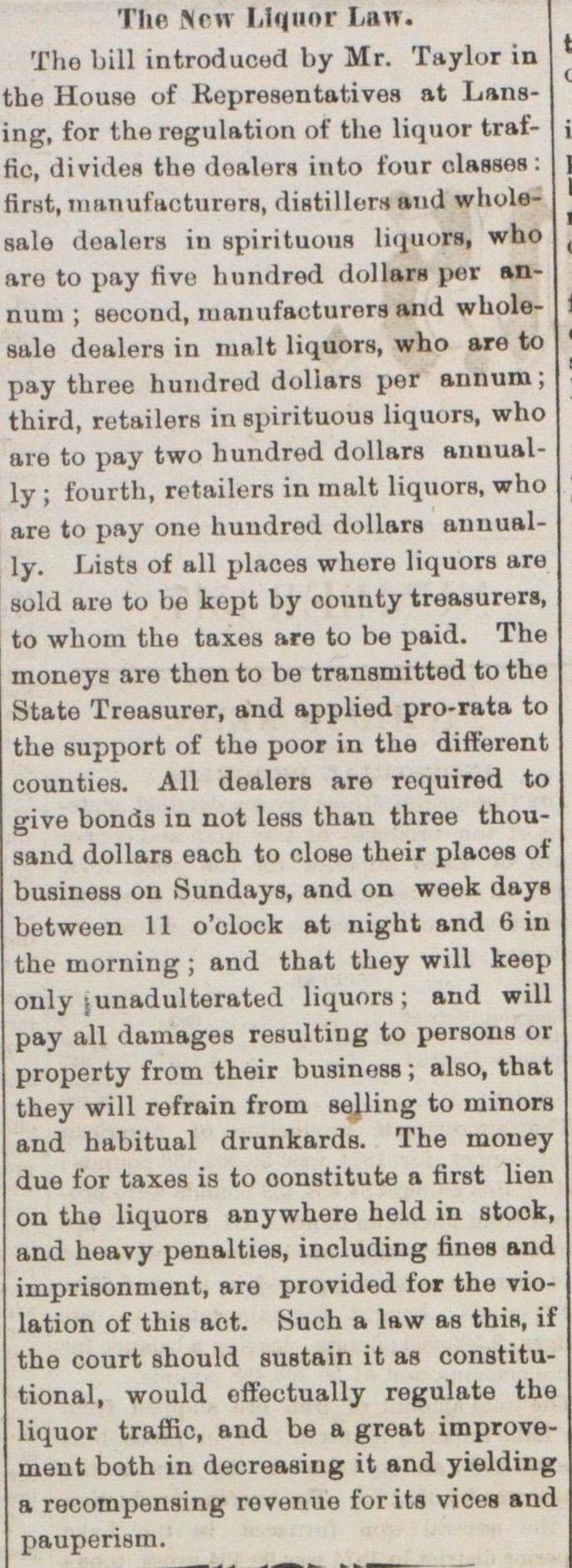The New Liquor Law

Tlio bilí introduced by Mr. Taylor in the House of Representativos at Lansing, for the regulation of the liquor traffic, divides the doalers into tour classes : first, manufacturera, distillors and wholesale dealers in spirituous liquorn, who are to pay five hundred dollars per annum ; secoud, manufaoturors and wholesale dealers in malt liquors, who are to pay three hundrod dollars per annum; third, retailers in spirituous liquors, who are to pay two hundred dollars anuually ; fourth, retailers in malt liquors, who are to pay one huudred dollars auuually. Lists of all places whore liquors are sold are to be kopt by couuty treasurers, to wliom the taxes are to be paid. The moneys are thon to be transrnitted to the State Treasurer, and applied pro-rata to the support of the poor in the different counties. All dealers are rcquired to give bonda in not loss than three thousand dollars each to olose their places of business on Sundays, and on week days between 11 o'olock at night and 6 in the morning ; and that they will keep only unadulterated liquors ; and will pay all damages resulting to persons or property from their buBinoss ; also, that they will refrain from selling to minors and habitual drunkards. The money due for taxes is to oonstitute a first lien on the liquors anywhere held in stook, and heavy penalties, including finos and iinprisonnient, are provided for the violation of this act. Suoh a law as this, if the court should sustain it as constitutional, would offectually regúlate the liquor trafftc, and be a groat improvement both in decreasiug it and yielding a recompenBÍng rovenue forits vioes and pauperism.
Article
Subjects
Old News
Michigan Argus